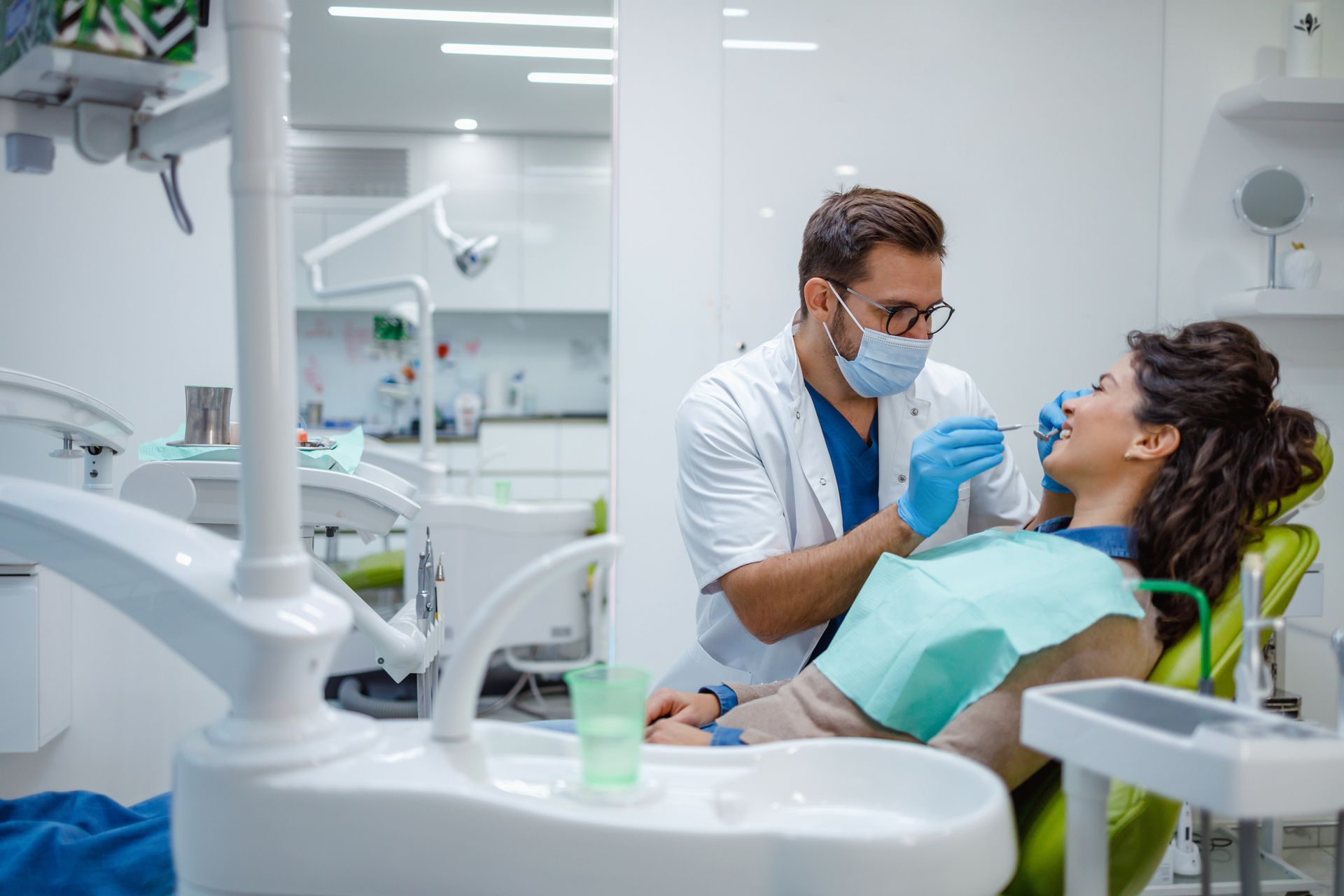RESTORING YOUR SMILE WITH COMFORT & CARE
At Broadview Dental Clinic, SA, we understand that losing teeth can be a life-changing experience that affects more than just your smile. It can impact how you eat, speak, and feel about yourself. That’s why we offer high-quality, custom-made dentures designed to restore function, appearance, and confidence. Whether you need full dentures to replace all teeth or partial dentures to fill in a few gaps, our caring team will guide you through the process with understanding and expertise. Modern dentures are designed to be comfortable, secure, and natural-looking, helping you enjoy life without compromise.
TYPES OF DENTURES WE OFFER
Dentures are a versatile and affordable solution for replacing missing teeth, and we tailor each set to meet your unique needs. Depending on your situation, our dentists may recommend full dentures or partial dentures.
OPTIONS FOR DENTURES:
Full Dentures: Designed for patients missing all of their teeth, these dentures restore your ability to chew, speak, and smile with confidence. They also provide essential support for your lips and cheeks, helping maintain your natural facial structure.
Partial Dentures: A great choice for those missing several teeth, partial dentures fit comfortably around existing teeth and restore both function and appearance. They can be made from durable plastic or a combination of cobalt chrome and plastic for extra strength.
No matter which option is right for you, every denture is carefully crafted to match the colour and shape of your natural teeth for a seamless look.
HOW DENTURES IMPROVE QUALITY OF LIFE
Dentures do much more than replace missing teeth—they give you back the freedom to enjoy everyday activities. From enjoying your favourite foods to speaking clearly and smiling without hesitation, dentures can make a positive difference to your lifestyle. They are also one of the most cost-effective solutions for restoring your smile, making them accessible for people of all ages.
At Broadview Dental Clinic, SA, our focus is on providing dentures that are functional, long-lasting, and tailored to your comfort. We’ll discuss material options with you—whether lightweight cobalt chrome or traditional plastic—so you can choose what suits your needs and budget. Our goal is always to provide practical solutions that work for your life.
WHY CHOOSE BROADVIEW DENTAL CLINIC FOR DENTURES
With over 40 years of trusted dental care in the Broadview community, our clinic is known for its patient-first approach. We take the time to listen to your concerns, explain your options in simple terms, and make sure you feel confident in your treatment. From your initial consultation to your final fitting, our team is here to support you every step of the way.
Dentures at Broadview Dental Clinic are more than just replacements for missing teeth—they’re a pathway back to health, confidence, and quality of life. With caring dentists, modern techniques, and a warm, welcoming environment, you can be sure your smile is in safe hands.
DENTURE FREQUENTLY ASKED QUESTIONS
What are dentures, and how do they help?
Dentures are removable false teeth designed to replace missing natural teeth. At Broadview Dental Clinic, SA, they improve appearance, speech, and eating ability.
What is the difference between full dentures and partial dentures?
Full dentures replace all teeth in your upper or lower jaw, while partial dentures replace several missing teeth and fit around your natural ones. Contact Broadview Dental Clinic on 08 8261 9856 to learn which option suits you best.
Are dentures in Broadview, SA, comfortable to wear?
Modern dentures are custom-made to fit securely and comfortably. Our team ensures your dentures are designed for both function and natural appearance.
How long do dentures last?
With proper care, dentures can last 5 to 10 years before needing adjustments or replacement. Regular check-ups at Broadview Dental Clinic help maintain a good fit.
Can dentures improve my speech and eating ability?
Yes. Dentures restore proper chewing and improve speech clarity. Patients at Broadview Dental Clinic often notice immediate improvements in everyday activities.
How much do dentures cost in SA?
The cost varies depending on whether you need full or partial dentures and the materials used. For an affordable, personalised quote, call Broadview Dental Clinic on
Regain your confidence with dentures from Broadview Dental Clinic.














